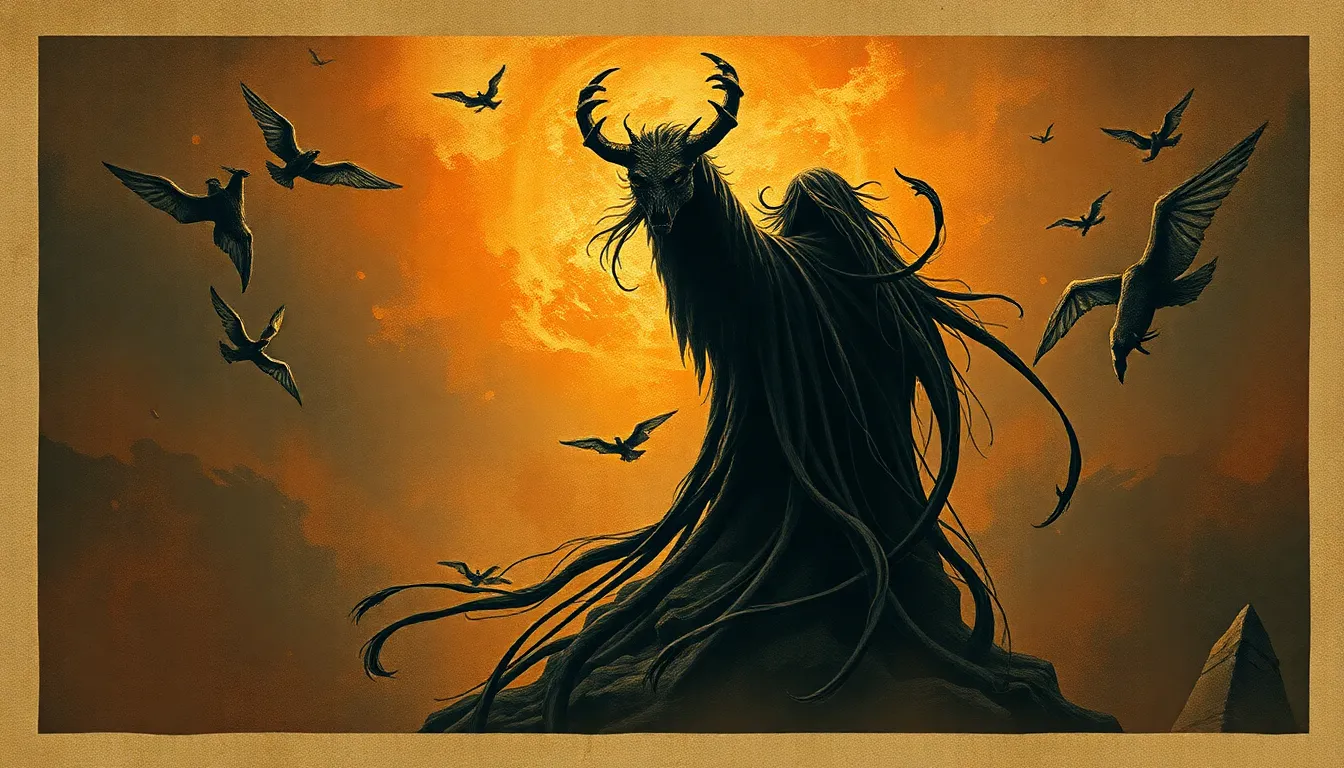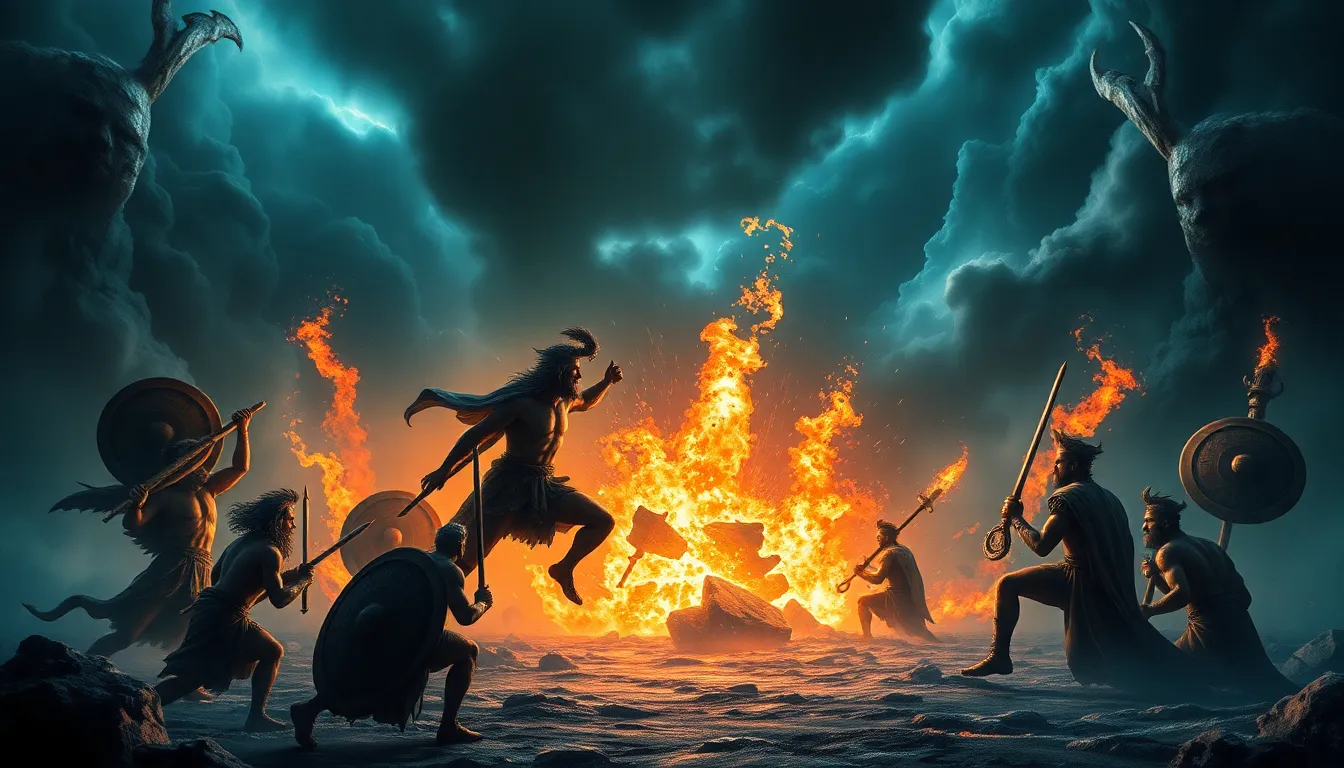The Most Chilling Curses in Literature: Can Words Haunt Us?
Throughout history, literature has wielded the profound power of words, shaping our fears, beliefs, and understanding of the human condition. Among the most chilling devices in storytelling are curses, which have long served to evoke suspense and dread. Curses often encapsulate the darkest aspects of human experience, weaving tales of misfortune and despair. This article will explore the most chilling curses in literature, examining their psychological impact and enduring legacy in the world of storytelling.
Introduction: The Power of Words
The significance of curses in literature cannot be overstated. They serve as pivotal plot devices that propel narratives forward, creating tension and conflict. A well-crafted curse can evoke fear, inspire empathy, and illustrate the fragility of human existence. From ancient texts to contemporary novels, curses highlight the intricate relationship between language and emotion, showcasing how words can haunt us long after the story ends.
By exploring the most chilling curses in literature, we can uncover their psychological effects on characters and readers alike, shedding light on the lasting power of the written word.
The Historical Context of Curses in Literature
Curses have permeated folklore and mythology throughout history, often serving as warnings or moral lessons. Ancient civilizations believed in the power of spoken words, viewing curses as manifestations of divine wrath or supernatural forces. For example:
- Ancient Greece: Curses were often invoked in tragedies, reflecting the belief in fate and the gods’ influence over human lives.
- Medieval Europe: Curses featured prominently in folklore, with witches and sorcerers casting spells to bring about misfortune.
- Indigenous Cultures: Many cultures have their own variations of curses, often tied to spiritual beliefs and rituals.
In modern literature, curses have evolved but retain their cultural significance. While ancient curses often served a moral function, contemporary curses can reflect personal struggles, societal issues, and existential themes, bridging the gap between the past and present.
Classic Examples of Curses in Literature
Iconic literary works often feature curses that shape character development and plot progression. One of the most famous examples is Shakespeare’s Macbeth, where the titular character is cursed by his ambition and the prophecies of the three witches. This curse leads to his downfall, illustrating the destructive power of unchecked ambition.
Another classic example is Oscar Wilde’s The Picture of Dorian Gray, where Dorian’s wish to remain youthful while his portrait bears the consequences of his actions serves as a curse. This narrative explores themes of vanity, morality, and the impact of choices on one’s soul.
In both cases, the curses serve as manifestations of fate and destiny, compelling characters to confront their inner demons and ultimately leading to tragic outcomes.
Psychological Effects of Curses on Characters
The mental and emotional toll of being cursed is a recurring theme in literature. Characters often grapple with feelings of guilt, paranoia, and existential dread. For instance:
- Aeneas in The Aeneid: Aeneas is burdened by the fate of founding Rome, struggling with his sense of duty and the loss of personal desires.
- Gregor Samsa in The Metamorphosis: Gregor’s transformation into a bug serves as a metaphor for alienation and despair, reflecting the psychological burden of societal expectations.
These characters illustrate how curses can lead to profound psychological conflicts, ultimately shaping their identities and destinies.
Curses as Metaphors for Real-Life Struggles
Literary curses often mirror societal issues and personal struggles. They can represent:
- Addiction: Characters may grapple with self-destructive behaviors, akin to being cursed by their own choices.
- Trauma: Curses can symbolize the lingering effects of past traumas, haunting characters long after the initial event.
- Loss: The emotional weight of grief can manifest as a curse, affecting characters’ relationships and perceptions of reality.
Contemporary literature often reflects these themes, illustrating how curses resonate with modern readers and their own experiences.
The Role of the Supernatural in Cursed Narratives
Supernatural elements are frequently intertwined with curses, adding an extra layer of chilling effect. Witches, ghosts, and deities often play pivotal roles in these narratives. The line between reality and the supernatural blurs, creating an atmosphere of uncertainty and fear.
Authors leverage supernatural elements to enhance the impact of curses, making readers question the nature of reality. The presence of these forces can evoke feelings of dread, as characters confront not only their personal demons but also the unknown.
Famous Curses in Folktales and Their Literary Adaptations
Many popular curses from folklore have been adapted into literary works, enriching the narrative landscape. Some notable examples include:
- The Curse of the Pharaohs: The legend surrounding the tomb of Tutankhamun has inspired countless stories about the dangers of disturbing the dead.
- Bluebeard: This tale of a man with a cursed past has been retold in various forms, emphasizing themes of curiosity and consequence.
These adaptations illustrate the evolution of folklore curses into contemporary narratives, reflecting changing societal values and fears.
The Reader’s Experience: How Curses Affect Us
The experience of reading about curses evokes powerful psychological and emotional responses. Readers may feel:
- Fear: The chilling nature of curses can provoke a visceral reaction, drawing readers deeper into the narrative.
- Empathy: Understanding the struggles of cursed characters can evoke feelings of compassion and identification.
- Intrigue: The mysterious nature of curses often compels readers to ponder their implications and meanings.
This engagement enhances the immersive quality of literature, allowing readers to explore the darker sides of human experience.
Curses in Modern Literature: A Reflection of Our Times
In modern literature, curses continue to serve as powerful metaphors for contemporary issues. Authors use them to explore themes such as:
- Social Injustice: Curses may symbolize the plight of marginalized communities grappling with systemic oppression.
- Environmental Degradation: The consequences of humanity’s actions can manifest as curses, highlighting the urgent need for change.
- Technological Alienation: Characters may face curses related to the isolating effects of modern technology.
These curses resonate with readers today, reflecting the complexities of modern life and the challenges we face.
Conclusion
As we delve into the most chilling curses in literature, we uncover a rich tapestry of psychological, emotional, and societal implications. Curses serve as powerful narratives that illuminate the darkest corners of the human experience, revealing our fears, struggles, and desires. Through the ages, the haunting quality of curses has captivated readers, reminding us of the profound impact of words and the stories they tell.




